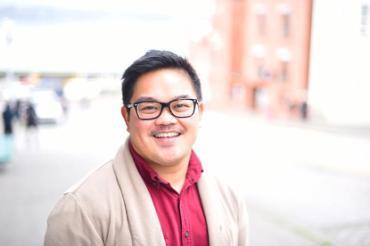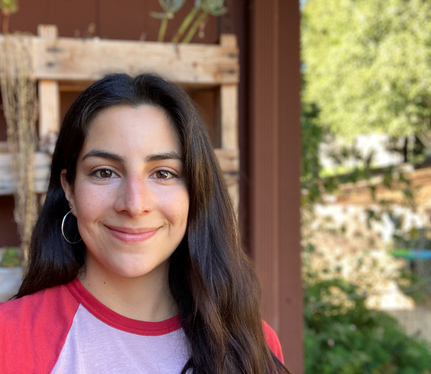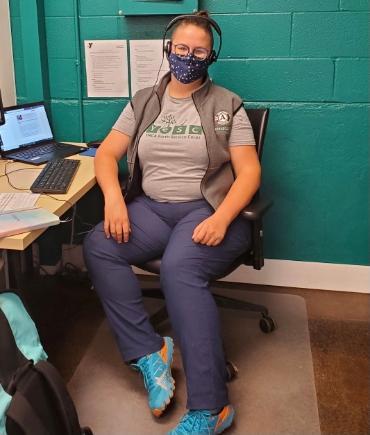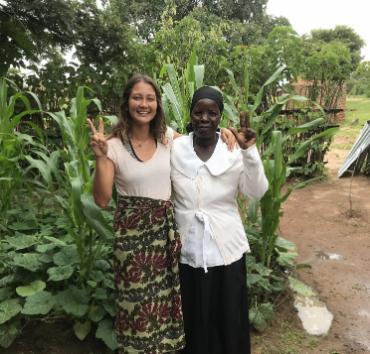Our Alumni in Action
We caught up with some of our Environmental Studies alums to find out how they are using their Environmental Studies degrees and how an SU Environmental Studies education has prepared them for a career in their chosen fields.
Featured Alum
 Jaybee Ragudo, ‘13
Jaybee Ragudo, ‘13
Specialization in Urban Sustainability
"All my interactions help me understand community needs and it is my job to bring community members and their feedback into the decision-making process. It all comes back to building relationships that define and build spaces for our communities."
My Environmental Studies Degree prepared me well for my position as an Associate at Enviroissues. We are a communication firm whose goal is to engage the public and decision-makers in conversations that build relationships and define our communities.
What I love most about my job is and my position is how much we are entrenched in public outreach. Public outreach is so vast and diverse in its interactions. I’ve had the opportunity to explore all of them through planning public events, developing web pages, making phone calls, sending emails, creating construction notifications (Yes! The ones that you get in the mail about utility work) and doing that through Covid. It is very rewarding because all these interactions help me understand community needs and it is my job to bring community members and their feedback into the decision-making process. It all comes back to building relationships that define and build spaces for our communities.
I employ the knowledge and experience from my Environmental Studies classes is space activation, and how centralizing human use and interaction breeds success when creating something intended for the public. Over the summer, we worked on the designing the playground that would be on the new Pier 58 and engaged with the public to get their input. We reached out to educators, families and organizations who come to the Seattle waterfront and use it as learning or recreational space. With all the design, outreach and development that goes into a project, it’s easy to get lost in the process, but this project was very rewarding because the feedback we got was very warm and grounding. I loved hearing kids’ thoughts on how they perceived or understood some of the design options. They said things like. “It looks like swiss cheese,” or, “It’s “too pokey, and not that much fun.” It’s things like these that remind me why I love what I do.
 Viviana Padilla, ‘18
Viviana Padilla, ‘18
"I always had a passion for food and people, so seeing an entire alternate food system pop up, seemingly out of nowhere, always amazed me. Now I know well that there's a lot that goes into it, but the effort is certainly worth it."
My Environmental Studies Degree prepared me well for my position as the Operations Manager of the Berkeley Farmers' Markets, a program of a non-profit called the Ecology Center. We have three different markets in Berkeley, and my primary responsibility is to ensure that each has everything it needs to run smoothly. I also support the financial tracking of our CalFresh and Market Match nutritional benefit programs, which the Ecology Center facilitates for the entire state of California.
My favorite thing about my job is the market itself! My mom grew up in the fields, so my entire life she made it a point to take me to the farmers’ market each Saturday to meet the farmers and show me the origin of my food. I always had a passion for food and people, so seeing an entire alternate food system pop up, seemingly out of nowhere, always amazed me. Now I know well that there's a lot that goes into it, but the effort is certainly worth it.
Something I draw on constantly from my Environmental Studies days are the many case studies like climate change and fracking, where progress required collaboration with a diverse set of stakeholders. In my role, I seek to create and maintain a space that benefits farmers, vendors and customers in three very different socioeconomic areas. I frequently speak with members of each of these groups and I consider their unique needs and experiences when making decisions for the market as a whole.
/322x0:2254x1932/prod01/channel_34/media/seattle-university/college-of-arts-and-sciences/departments-and-programs/environmental-studies-program/images/Students-on-Tree-Branch-min.jpg)
Stay Connected
Let us know what you are up to and ensure we can stay in touch.
 Jessie Dirks, '19
Jessie Dirks, '19 Maia Sparkman, ‘18
Maia Sparkman, ‘18